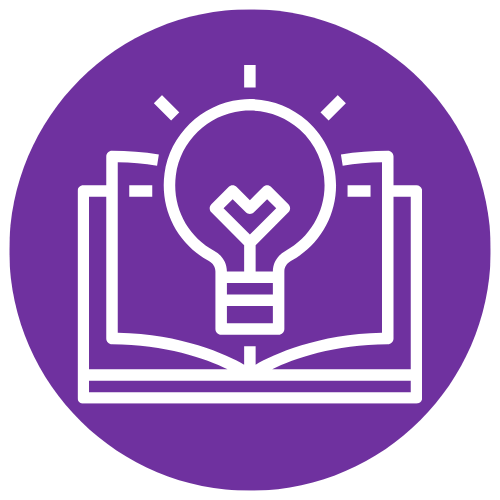Assignment: Earth Sustainability Framework
Assignment: Earth is our plan for a healthy, just and thriving campus and world. Authored by the USC Presidential Working Group (PWG) on Sustainability in Education, Research and Operations with input from teams across the university, it establishes a vision, aspirations and goals for USC across five domains:
Assignment: Earth formalizes our commitment to addressing climate change and creating a more sustainable future. It will guide our actions through 2028 and beyond and enable us to adapt to innovations and new solutions as they emerge. Hear USC’s Chief Sustainability Officer Mick Dalrymple describe how you can get involved.
During Summer 2025, halfway into the six-year Assignment: Earth timeframe, the PWG assessed all 30 of the framework’s goals and refined language based on:
• Availability of data by which to measure progress; and
• Refining non-measurable goals into SMART goals.
We invite people interested in these changes to view the updated Framework below, the previous framework available at this link or to reach out to the Office of Sustainability at sustainability@usc.edu.
Overview
Assignment: Earth is structured to guide the university’s actions while remaining flexible enough to adapt to emerging sustainability solutions. It is informed by sustainability definitions that incorporate both universally-recognizable concepts and USC-specific features.
The definitions inform a Vision for sustainability at USC. Five domains support that vision: Education, Research, Inclusion, Operations and Engagement. A set of Aspirations guide efforts within each of the five domains, and SMART Goals have been established for fulfilling the aspirations while ensuring accountability, progress reporting and transparency.
Assignment: Earth’s Vision, Aspirations and Goals will remain consistent through the 2028 time horizon; its flexibility lies in its Initiatives. These Initiatives include various changes to policies, procedures and behaviors; development of targeted-programs; investment in physical and organizational infrastructure, etc. The initiatives will remain flexible and fluid. Many will be fully implemented, but over time, others may not be feasible and, importantly, new ones will arise as technology, society and opportunities continue to evolve.
Vision
USC will serve as a leader in urgently aligning human economic and social systems with nature’s life support systems by:
- Educating future leaders from all walks of life in their chosen field with a problem-solving mindset aligned with promoting sustainability in human and natural systems, and involving all stakeholders
- Working across disciplines and with stakeholders to generate innovative research solutions that enable society, the economy and ecosystems to flourish
- Aligning university operations with natural systems and their capacities, engaging stakeholder input to efficiently support the mission and strengthen our local communities
- Engaging our communities at all levels to solve challenges and build a stronger, healthier society, economy and environment
Aspirations
- Ensure that USC alumni are stewards of the planet, with every USC student engaged in sustainability learning – both didactic and experiential – through courses, research and engagement at USC.
- Elevate the importance of interdisciplinary undergraduate scholarship at USC so that students graduate with both deep disciplinary expertise and broad skills in developing systemic solutions.
- Create new sustainability-solutions knowledge through interdisciplinary efforts that may be developed locally and regionally, but that are scalable nationally and internationally. Such solutions will be developed by a diverse and inclusive community of faculty, students and post-docs, and the results will be measurably reported in publications, intellectual property filings and operational or commercial adoption. The trainees of the USC sustainability research program will be placed in academic, government, business and non-profit arenas.
- Engage in proactive, creative and accessible outreach to inform and empower the public, including local and national communities, and including K-12 students. Design community-based participatory research projects to address the needs particularly of underserved communities. Use a diverse and inclusive media toolbox, and engage the community via novel demonstration projects for solutions to the challenges of sustainability. Our initiative will recruit, train and retain a diverse and inclusive workforce, and it will meet the challenge of reaching parity metrics for characteristics protected by law.
- Create and demonstrate positive impact on the health and well-being of people and of the environment. Direct impacts include protecting lives and property, preserving scarce natural resources and reducing pollution and carbon emissions. Indirect impacts include research that positively affects policies, the development and implementation of impactful technologies and applications and participation in high-level advisory boards.
- Address the systems, structures and policies that facilitate (or hinder) inclusionary practices being adopted throughout our sustainability efforts. We recognize that we cannot adequately protect places or people without more intentionally interrogating our current policies and organizational culture, examining whether all voices and ideas are acknowledged and effectively addressed.
- Play a leadership role in monitoring and assessing whether our portfolio of sustainability courses, programs and projects remain centered on inclusion. Accountability for and alignment of our sustainability goals and our USC Unifying Values will be the vehicles for our efforts.
Recognizing the growing risks of climate change, USC will proactively assess vulnerabilities and integrate resilience strategies to strengthen campus-community adaptability and ensure long-term health, well-being, and sustainability.
- Mend our Climate Impact – Responding to the urgency of the climate crisis and USC’s contributions to it, USC aspires to reverse our impacts and contribute to the regeneration of the earth’s atmospheric greenhouse gas balance.
- Build a Circular Economy – Respecting planetary boundaries, USC will help build the circular economy by reducing and changing what it buys, maximizing the utility of what it uses and preparing expended items for their next best use.
- Develop Healthy Ecosystems – USC campuses and buildings will promote human wellbeing, ecosystem biodiversity and the connections between people and nature.
- Align with New Water Realities – Adapting to the continuing mega-drought in the western United States, USC will utilize the optimal source, quantity and quality of water for its operations, and use that water as many times as possible before returning it to the broader water cycle.
- Strengthen Transparency and Accountability – USC will leverage the power of technology, data, policies and management systems to ensure progress, awareness and inclusion of stakeholders in our sustainability journey.
- Mobilize Sustainability Action – USC will engage community members (on campus, in the broader community and globally) to align their professional, personal and collective behavior with sustainability best practices. Central to this process, USC will engage in dialogue with community, business, political and social leaders on how best to pursue sustainability while addressing social inequities.
- Partner in building Inclusive Communities – USC recognizes that diverse, equitable and inclusive communities not only create a robust and resilient society but are a prerequisite to environmental sustainability. Having broad and inclusive stakeholder representation from the beginning of discussions through implementation will celebrate and best leverage the rich tapestry of our communities in order to achieve sustainability goals.
- Support Arts & Culture Practitioners – USC will empower and support arts and culture practitioners, building a vibrant, shared and enduring sustainability culture at USC and beyond.
- Contribute to Sustainability Leadership in Higher Education and Beyond – USC will serve as a model in collaboratively developing and utilizing tools and applied best practices in accelerating the transition to sustainability.
Goals
1.1. Ensure every student has sufficient access to sustainability education by improving the identification of sustainability courses currently offered and by increasing undergraduate sustainability courses offered by 10 per year through 2028.
1.2. Increase faculty capacity to teach sustainability courses—both didactic and experiential by building expertise in our current faculty and through a focused faculty hiring approach that increases the number of faculty with expertise in sustainability.
1.3. Support sustainability-focused experiential learning by implementing a program for experiential course development and by facilitating student sustainability research partnerships with staff, faculty, alumni and/or community partners.
USC research is tackling critical sustainability problems by addressing challenges facing natural resources, urban health, infrastructure, mobility, communications, behavior and equity. In doing so, we strive to address the following goals:
2.1. Substantially increase interdisciplinary research on sustainability and climate change solutions from the 2020 baseline until 2028, empowered by world-class scholars in a wide array of disciplines. USC is uniquely qualified to spearhead this research and implementation necessary to address sustainability challenges due to its location at the heart of a rapidly evolving urban landscape that is impacted by climate change and is experiencing wildfires, air pollution, heat waves, coastal erosion, threats to the marine ecosystems and drought.
2.2. Increase USC’s public outreach, communication and engagement regarding sustainability and climate change solutions by 8% compounded annually from the 2020 baseline until 2028. This will build on USC’s strong ties to stakeholders in city and state government, business and industry, non-governmental organizations and to surrounding communities in developing scalable models of equity-based solutions.
2.3. Implement mechanisms and support by fiscal year 2028 to incentivize and accelerate:
• Interdisciplinary, cross-departmental and community-engaged sustainability research that leads to knowledge, understanding and relationships.
• Translation of that work to positive real-world impact.
Center stakeholder engagement in the design, implementation and evaluation of USC sustainability initiatives as drivers of (or levers for) the environmental stewardship needed for a vision of our collective future and the common good. The centering of stakeholder engagement will be measured by examining the impact of who participates, our partnerships and our projects, on USC and the community, from 2021-2028.
3.1. Provide comprehensive support and services for all students, faculty, staff and alumni to enhance their sense of belonging and being valued, as measured by periodic surveys.
3.2. By fiscal year 2028, community partners from the neighborhoods surrounding USC campuses will be included in joint programming, planning and decision-making processes at USC, as measured by periodic surveys.
3.3. By June 2023, develop and publish a comprehensive catalog of the sustainability research and programs at USC that engage with local communities disproportionately impacted by environmental disruptions and risk exposures. Updates to the catalog will be conducted annually.
4.1. Mend Our Climate
4.1.a. Achieve climate neutrality for annual scopes 1 & 2 emissions for fiscal year 2025 and beyond while seeking to minimize the use of carbon offsets.
4.1.b. Achieve climate neutrality for annual scope 3 emissions (air travel, commuting, waste, T&D losses) for fiscal year 2035 and beyond (achieving a 50% reduction by 2028, using 2014 as the baseline).
4.1.c. Complete an assessment of purchasing-related scope 3 emissions by fiscal year 2024 and set a related reduction goal by the end of fiscal year 2025.
4.1.d. Complete an assessment of scope 3 embodied carbon in all new major construction and renovation projects beginning Construction Documents in or after fiscal year 2023 and pursue design and construction strategies for reducing that embodied carbon. For projects beginning Construction Documents in or after fiscal year 2025, USC will offset any remaining embodied carbon.
4.1.e. Complete an experiential learning project to model and report the embodied carbon of the existing physical campuses by fiscal year 2024.
4.1.f. Complete an experiential learning project to model and report USC’s historical scope 1 and 2 emissions by fiscal year 2024.
4.1.g. USC initiated the liquidation of its fossil fuel holdings in 2021, and will complete the liquidation of its direct fossil fuel investment holdings from the endowment by the end of fiscal year 2031.
4.1.h. Publish semi-annual updates to track progress on the liquidation of fossil fuel investments starting in fiscal year 2024.
4.1.i. By fiscal year 2028, USC will complete a climate resilience assessment and integrate climate resilience strategies into institutional plans to enhance campus-community health and well-being.
4.2. Build a Circular Economy
4.2.a. Achieve Zero Waste (90% diversion rate) by fiscal year 2028.
4.2.b. Implement at least two services or material stream initiatives annually that enhance circularity or contribute to closed-loop systems.
4.3. Align with New Water Realities
4.3.a. Achieve a 20% potable water use reduction per square foot of total campus building space by fiscal year 2028 (fiscal year 2014 baseline).
4.4. Develop Healthy Ecosystems
4.4.a. Develop and begin implementing a long-term plan for grounds and landscaping and strategic planting standards by fiscal year 2024.
4.4.b. Update USC’s Design Guidelines to incorporate health and wellness strategies into facilities designs by fiscal year 2023.
4.5. Strengthen Transparency and Accountability
4.5.a. Establish a publicly accessible online dashboard to track sustainability resource metrics by fiscal year 2023.
4.5.b. Publish annual reports on operational sustainability goals progress within six months of the close of each fiscal year.
4.5.c. Incorporate sustainability criteria into operations performance reviews by fiscal year 2024.
5.1. Achieve STARS Gold by 2025 and STARS Platinum by 2028 by engaging all departments, schools, and students on their role in advancing sustainability at USC, and empowering them to take actions that support Assignment: Earth.
5.2. Achieve a university culture of sustainability by 2028, defined as 80% of students, faculty and staff demonstrating an understanding of sustainability and perceiving USC as having a culture that cultivates sustainability.
5.3. Achieve university-wide practice of sustainability behaviors by 2028, defined as an average of 80% of students, faculty and staff self-reporting engagement in various behaviors “usually” or “always.”




